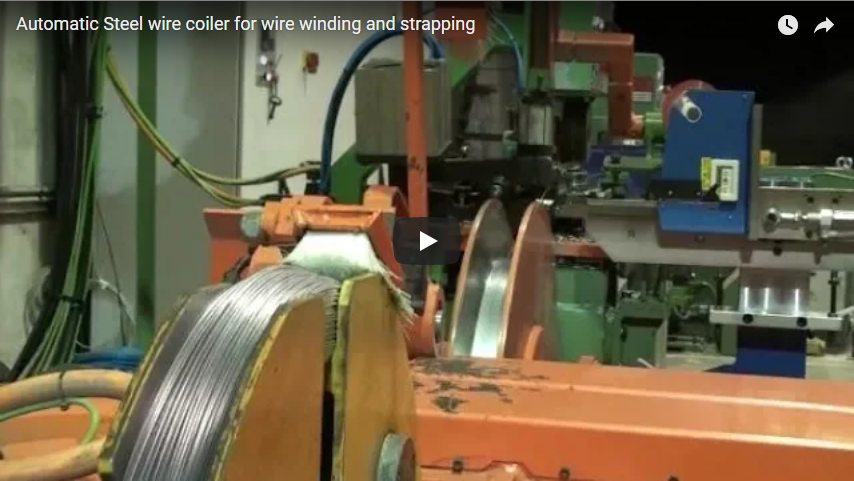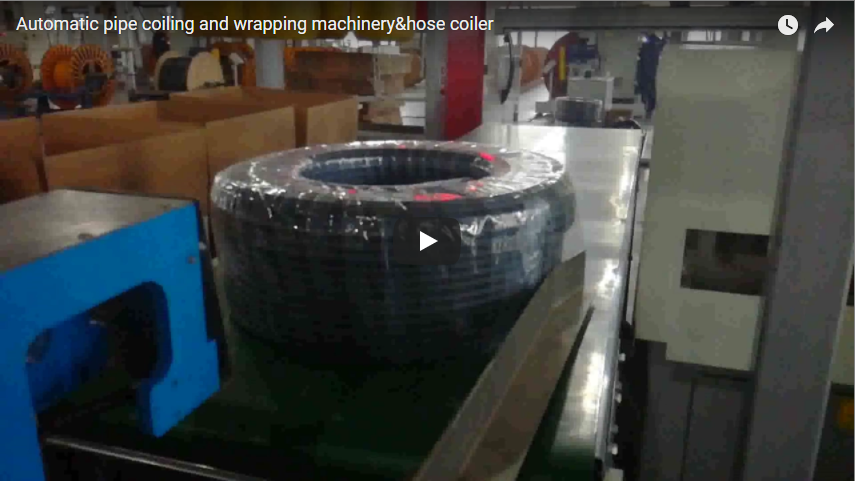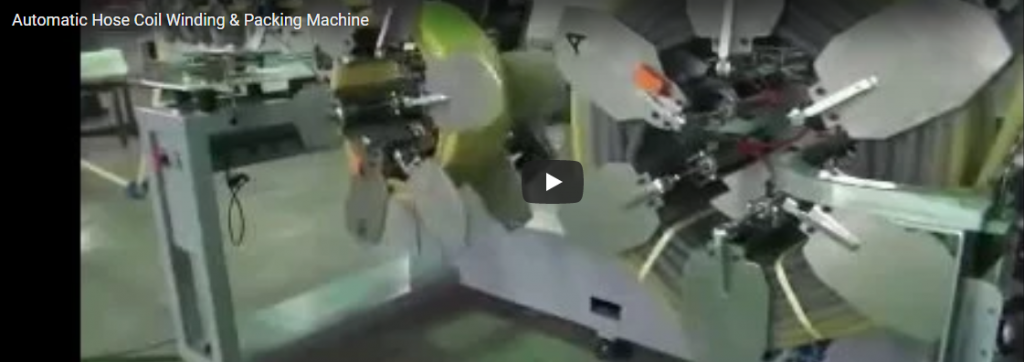Streamlining Pipe Production: Advancing Coiling and Strapping with Automation
In modern pipe manufacturing and processing facilities, managing the output from extrusion lines presents significant logistical challenges. Manual coiling and strapping operations are often labor-intensive, inconsistent, and can introduce bottlenecks that hinder overall plant efficiency. Addressing these challenges requires robust automation solutions capable of maintaining pace with high-speed production while ensuring product integrity and packaging security.
FHOPE emerges as a significant player in this domain, offering advanced automated systems like their FC-2000 model, designed specifically as a comprehensive pipe coiler and strapping packing machine. This system represents a leap forward from traditional methods, integrating coiling, cutting, and strapping into a seamless, automated workflow.
The Imperative for Automation in Pipe Handling
Research published in journals like the Journal of Manufacturing Systems consistently highlights the benefits of automation in repetitive industrial tasks. Manual handling of large-diameter or lengthy pipes poses ergonomic risks and often results in inconsistent coil density and strapping tension. This variability can lead to issues during storage, transit, and subsequent deployment, impacting both cost and customer satisfaction. Furthermore, achieving the throughput demanded by modern extrusion lines (often exceeding several dozen meters per minute) is practically unattainable with manual methods alone.
Introducing the FHOPE FC-2000: A Technical Overview
The FHOPE FC-2000 is engineered to automate the downstream handling of various plastic pipes, including materials crucial to infrastructure and industrial applications:
- Polyethylene (PE)
- Polyvinyl Chloride (PVC)
- High-Density Polyethylene (HDPE)
- Polypropylene (PP)
This system integrates several key technologies, potentially drawing inspiration from patented mechanisms for tension control and traversing systems (similar principles found in winding technology patents), to deliver consistent performance.
Key Features and Performance Parameters:
- High-Speed Coiling: Capable of processing pipe at speeds up to 100 meters per minute, ensuring synchronization with upstream extrusion processes. This capability is critical for maximizing production line output.
- Wide Diameter Range: Accommodates pipe diameters ranging from 20 mm to 400 mm, offering flexibility for diverse production requirements.
- Synchronized Tension Control: Employs sophisticated control systems to maintain consistent tension during the coiling process. This is vital for producing stable, uniform coils and preventing pipe deformation, a principle underscored in polymer processing research.
- Automated Precision Cutting: Features an integrated cutting unit that automatically sections the pipe to pre-programmed lengths. This system utilizes precision guidance and cutting mechanisms (potentially shear or rotary blade based) for clean, accurate cuts, eliminating manual intervention and measurement errors.
- Secure Steel Strapping: Applies robust steel straps for high coil integrity. The standard configuration applies two straps per coil, enhancing stability for handling, stacking, and transportation, meeting common industry packaging standards. Tamper-proof strapping options further secure the product.
- Advanced Control System: Typically utilizes PLC (Programmable Logic Controller) technology with an intuitive HMI (Human-Machine Interface) for setting parameters like pipe diameter, desired coil length, and strapping positions. This allows for easy operation and quick changeovers between production runs.
Operational and Economic Advantages
Implementing an automated system like the FC-2000 translates into tangible benefits for pipe manufacturers and distributors:
- Enhanced Throughput: Directly addresses production bottlenecks, allowing extrusion lines to operate closer to their maximum potential.
- Improved Coil Quality: Consistent tension and precise winding produce dense, stable coils that are easier to handle and less prone to damage. This aligns with findings on the importance of packaging integrity in supply chain logistics.
- Reduced Labor Requirements: Automates tasks previously requiring significant manual labor, mitigating issues related to labor shortages and reducing operational costs. Studies on manufacturing automation frequently cite labor cost reduction and reallocation as primary ROI drivers.
- Increased Safety: Minimizes manual handling of heavy or awkward pipe lengths and coils, reducing the risk of workplace injuries. Integrated safety features like emergency stops, light barriers, and overload protection further enhance operator safety.
- Optimized Logistics: Uniform, securely strapped coils improve stackability in warehouses and stability during transport, optimizing space utilization and reducing transit-related damage.
- Minimized Material Waste: Accurate cutting and secure handling reduce scrap generated from inconsistent lengths or damaged coils.
Built for Industrial Environments
Reflecting the demands of continuous operation, the FC-2000 is constructed using heavy-duty components designed for longevity in industrial settings. The emphasis on robust mechanical and electrical design ensures reliability and minimizes downtime, crucial factors for maintaining production schedules.
FHOPE's commitment to providing automated solutions like the FC-2000 positions them as a valuable partner for plastic pipe manufacturers seeking to optimize operations. By integrating high-speed coiling, precise cutting, and secure strapping, this machine offers a pathway to increased productivity, improved product quality, enhanced safety, and ultimately, a stronger competitive edge in the market.
info@fhopepack.com






